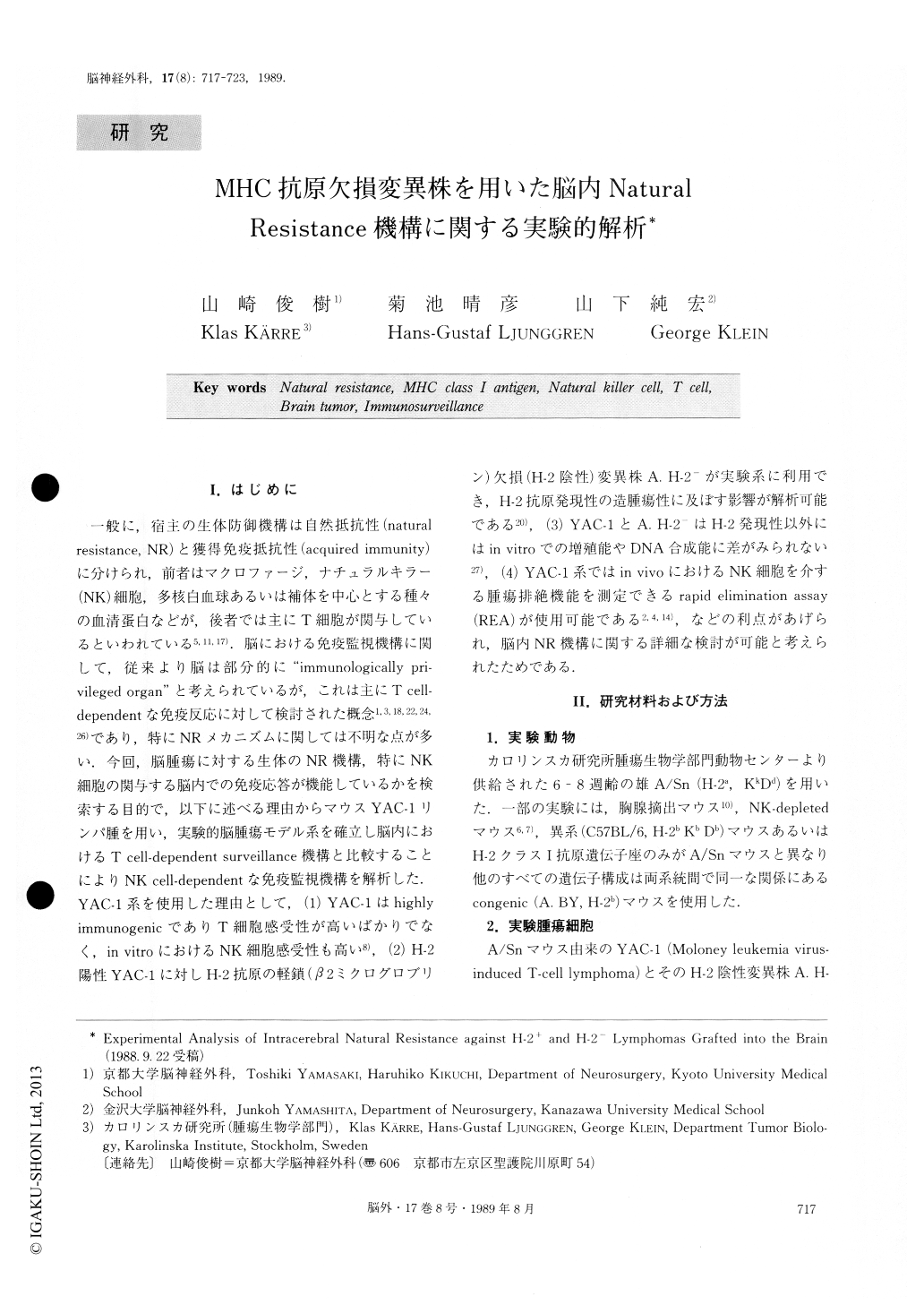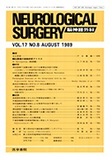Japanese
English
- 有料閲覧
- Abstract 文献概要
- 1ページ目 Look Inside
I.はじめに
一般に,宿主の生体防御機構は自然抵抗性(naturalresistance, NR)と獲得免疫抵抗性(acquired immunity)に分けられ,前者はマクロファージ,ナチュラルキラー(NK)細胞,多核白血球あるいは補体を中心とする種々の血清蛋白などが,後者では主にT細胞が関与しているといわれている5,11,17).脳における免疫監視機構に関して,従来より脳は部分的に"immunologically pri—vileged organ"と考えられているが,これは主にT cell—dependentな免疫反応に対して検討された概念1,3,18,22,24,26)であり,特にNRメカニズムに関しては不明な点が多い.今回,脳腫瘍に対する生体のNR機構,特にNK細胞の関与する脳内での免疫応答が機能しているかを検索する目的で,以下に述べる理由からマウスYAC−1リンパ腫を用い,実験的脳腫瘍モデル系を確立し脳内におけるT cell-dependent surveillance機構と比較することによりNK cell-dependentな免疫監視機構を解析した.
The authors have investigated intracerebral natural resistance mechanism after tumor trasplantation into the brain, by using YAC-1 (Moloney leukemia virus-induced T cell lymphoma of A/Sn mouse origin) and its H-2 negative A. H-2-. It was found that highly im-munogenic H-2+ YAC-1 was less tumorigenic than A. H-2- in untreated as well as NK-depleted syngeneic mice. The variant cells were not rejected even if inocu-lated together with YAC-1 cells into the brain. Furth-ermore, in T cell-depleted, thymectomized mice YAC-1 was as tumorigenic as A. H-2-.

Copyright © 1989, Igaku-Shoin Ltd. All rights reserved.


